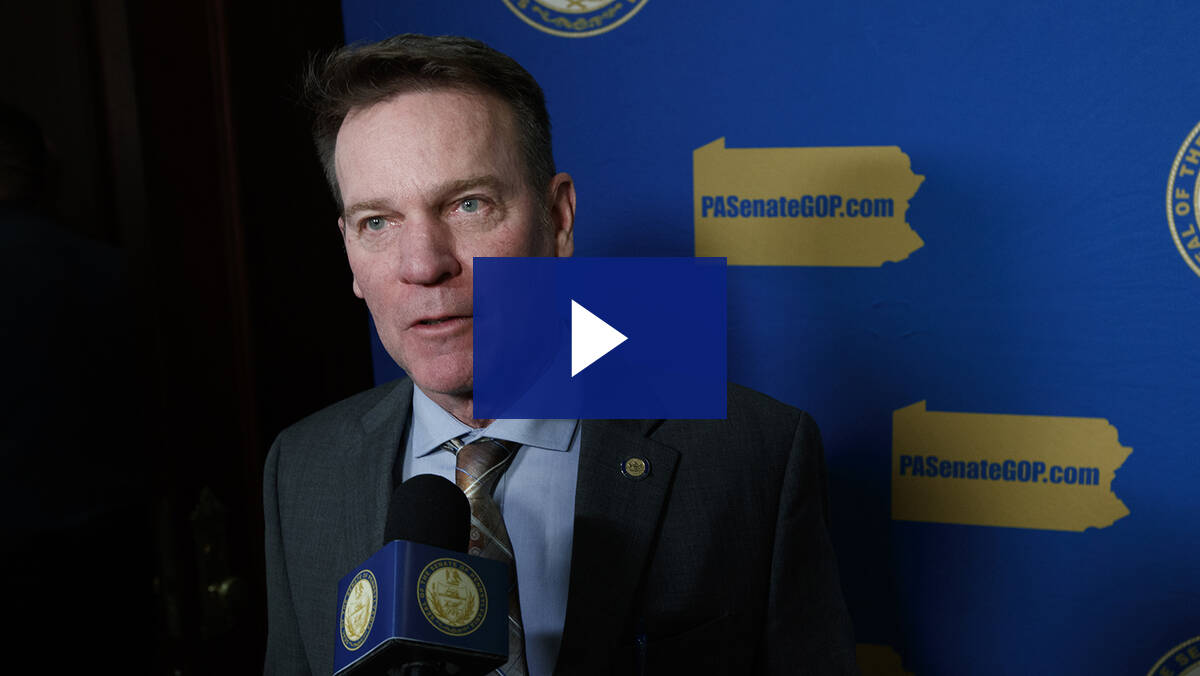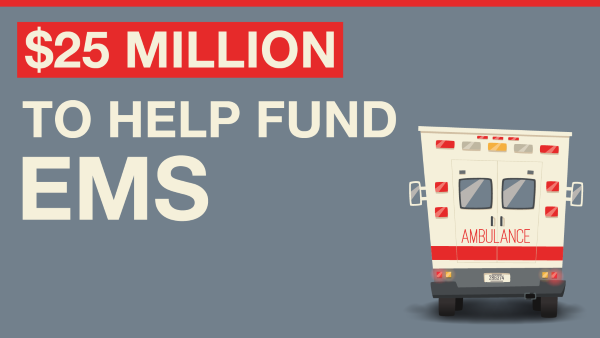
|
||
|
In this Update:
Gov. Wolf Sends General Assembly Budget Proposal with Huge Spending Increases
The new spending includes $2 billion in federal American Rescue Plan Act funds. Including the expenditure of federal dollars returned to Pennsylvania during the pandemic, the governor’s budget represents a 10.9% increase in spending. According to Senate Appropriations Committee budget projections, the governor’s plan will produce a $1.3 billion deficit for the 2023-24 fiscal year and create an even bigger bill for Pennsylvania taxpayers to pay long after the governor leaves office: a $13 billion deficit by 2026-27. “While I appreciate Gov. Tom Wolf’s spending plan for the coming fiscal year is only a proposal that will be the subject of discussion and negotiation during the next several months, I can’t believe a governor who sets himself up as a champion of education would eliminate the funding for an important higher education institution in northern Pennsylvania,” said Sen. Laughlin. “Gov. Wolf zeroes out the funding of the Northern Pennsylvania Regional College (NPRC), an institution that offers a convenient, affordable and needed college opportunity for students throughout our northern Pennsylvania communities.” “I will do everything I can to ensure not only that funding continues to flow to NPRC, but that our commonwealth gets a state budget that meets the core responsibilities of government without creating more financial problems for every Pennsylvanian,” Sen. Laughlin said. The Senate will hold a series of public hearings in the coming weeks to review the spending plan and produce a more responsible budget proposal that funds essential services while shielding taxpayers from the consequences of reckless overspending. Legislation Boosting Aid to First Responders Set for Enactment
Building on a promise to provide Pennsylvania’s frontline heroes with relief, the Senate approved legislation to provide $25 million in federal funding to support EMS providers. Since January, the General Assembly has advanced measures totaling $250 million for frontline workers, health care providers, emergency services and EMTs. The passage of Senate Bill 739 builds on the General Assembly’s recent efforts to distribute $225 million in federal relief funds for hospital and behavioral health providers to retain and recruit staff. The measure also would ensure that all fire companies – whether volunteer, paid or combination department – are eligible for the low-interest loans through the Fire and Emergency Medical Services (EMS) Loan Program. Voters approved expanding the program in a 2021 ballot question. Joint Hearing Receives Testimony About Chronic Wasting DiseaseThe Senate Game and Fisheries Committee, which I chair, held a joint public hearing with the Senate Agriculture and Rural Affairs Committee this past week in Bedford, PA, to receive testimony about Chronic Wasting Disease (CWD). Since first being detected in Pennsylvania deer roughly a decade ago, CWD has spread to all or part of 27 of Pennsylvania’s 67 counties. The neurological disease affects members of the cervid family (deer, elk, moose, and reindeer/caribou). The abnormal proteins that cause CWD are shed in saliva, urine, and feces, meaning animals can be infected via animal-to-animal contact or through contaminated environments. CWD-infected animals might not show symptoms of the disease for 18 to 24 months, but all white-tailed deer and elk that contract CWD die, there are no exceptions. The committee heard from several state officials and experts about CWD and what is currently being done to monitor and combat the expanding problem, as well as future efforts to address the disease. Testimony was provided to the committee by Bryan Burhans, executive director of the Pennsylvania Game Commission; Kevin Brightbill, Pennsylvania’s state veterinarian and director of the Bureau of Animal Health and Diagnostic Services within the Pennsylvania Department of Agriculture; Gregory Hostetter, the deputy secretary for Animal Health and Food Safety within the Pennsylvania Department of Agriculture; Torin Miller, director of policy for the National Deer Association; Josh Newton, president of the Pennsylvania Deer Farmers Association; as well as other CWD experts. Updated Agritourism Guide Available to Farmers
Agritourism activities – like corn mazes, hayrides, on-site dining/retail operations and educational programs – are a growing part of Pennsylvania’s agriculture economy. The Center for Rural Pennsylvania has an updated 128-page handbook to help farmers navigate agritourism issues. Last year, the General Assembly approved a new law to better protect farmers who offer these kinds of agritourism activities. Grants Available to Reduce Underage and Dangerous Drinking
The Pennsylvania Liquor Control Board (PLCB) is accepting applications for grants to fund programs that discourage and reduce underage and dangerous drinking and promote a message of responsible alcohol consumption by those of legal drinking age. Eligible grant applicants include school districts and institutions of higher education (including technical, trade and post-secondary establishments), community organizations, municipal police departments, municipal officials/representatives and nonprofit and for-profit organizations. The deadline to apply for grants is March 18. Applications and guidelines for submission are available on the PLCB website. Monday is National Donor Day
Monday isn’t just Valentine’s Day, it’s also National Donor Day. Many health groups use this day to sponsor blood and marrow drives and organ/tissue sign-ups. Organ donation saves lives and saves money, cutting health care costs by as much as two-thirds and saving Medicare millions of dollars every year. The General Assembly passed the Living Donor Protection Act last year, prohibiting insurers from discriminating against an organ or tissue donor. It also ensures family and medical leave is provided for an eligible employee for the preparation and recovery necessary for donation surgery. In addition, it requires development of informational materials relating to living donors and the benefits of live organ and tissue donation. |
||
|
||



Want to change how you receive these emails? 2025 © Senate of Pennsylvania | https://www.senatorlaughlin.com | Privacy Policy |





